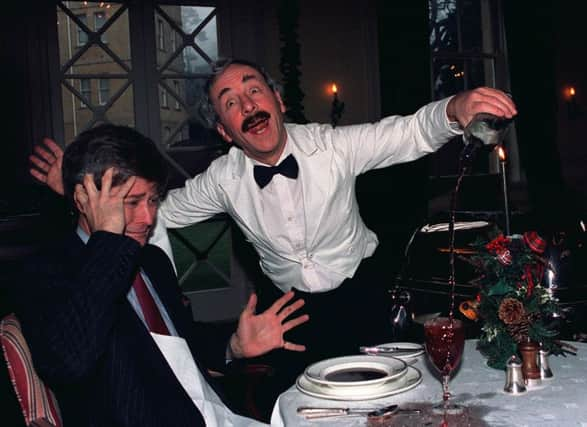Stephanie Smith: How '˜Dine and Dash' hurts hard-working waiters


It’s part of a chain, popular and busy from breakfast to close. We (me and the husband) became vaguely aware of a couple, smartly dressed and middle-aged, although a little unsteady looking, who appeared to be relocating from the dining area through to the bar to enjoy one final post-meal drink.
They ordered a pair of cocktails, and then must have made their way outside via the main entrance, as if to have a cigarette. We didn’t really notice them do this, nor, it seems, did anyone else, until a few minutes later when three bar staff suddenly belted outside and split up, running in different directions up and down the High Street.
Advertisement
Hide AdAdvertisement
Hide AdTurns out this couple had done a runner and sloped off without paying. They had been there all afternoon, ringing up a bill of well over £100. A staff member told us that, in these so-called “dine and dash” situations, the bartenders or waiters were expected to cover the losses from their own wages or tips.
We’re talking about young people, in the main, paid a fraction over the minimum wage. For a 10-hour shift, they might earn £65, plus tips.
Dine and dash is not uncommon. A quick search of Mumsnet forums brought up a thread of experience. One Mumsnetter complained that her friends had left a tapas bar without paying, because no one had presented them with a bill, therefore they felt perfectly entitled.
In Bembibre, northern Spain, a group of 120 diners booked a restaurant for an alleged baptism, racked up a £1,700 bill, then began a conga and danced off to their cars without paying.
Advertisement
Hide AdAdvertisement
Hide AdDine and dash has been on the rise in New York and London, with restaurateurs noting that it is often well-dressed, polite, older people with expensive tastes who tend to be the main offenders. One diner even faked heart attacks to get away without paying.
The practice of deducting losses from staff wages is also not unusual. Employers reason that waiters should keep an eye on “their own” customers. This fining, in my view, is shoddy and exploitative, as is the custom of adding an “optional” service charge which staff see none or very little of. The British Hospitality Association points out that there is no legal requirement for a restaurant to allocate a particular proportion of service charge or tip to employees. Well, there should be (and employees should get all of it).
As for those who tell themselves that dine and dash is a victimless crime, it is not. So think about who will really have to pay for your meal.
Email: [email protected]
Twitter: @yorkshirefashQ